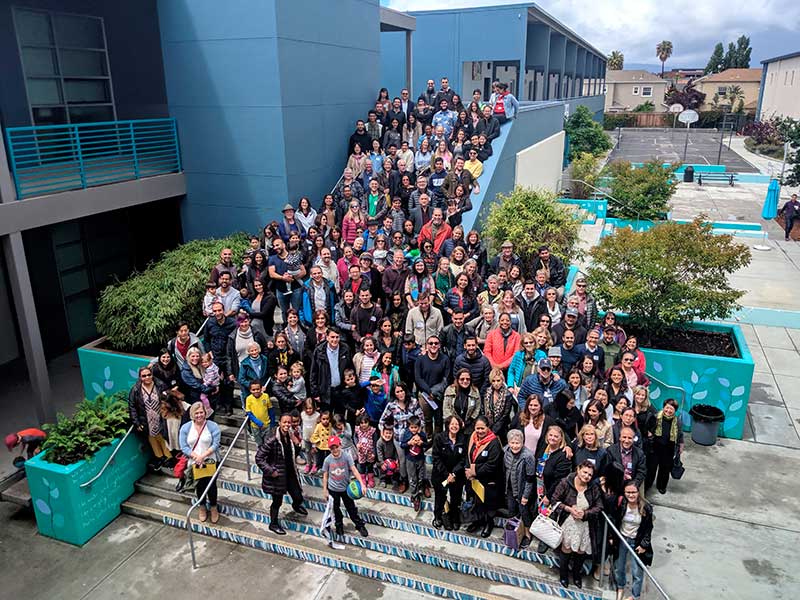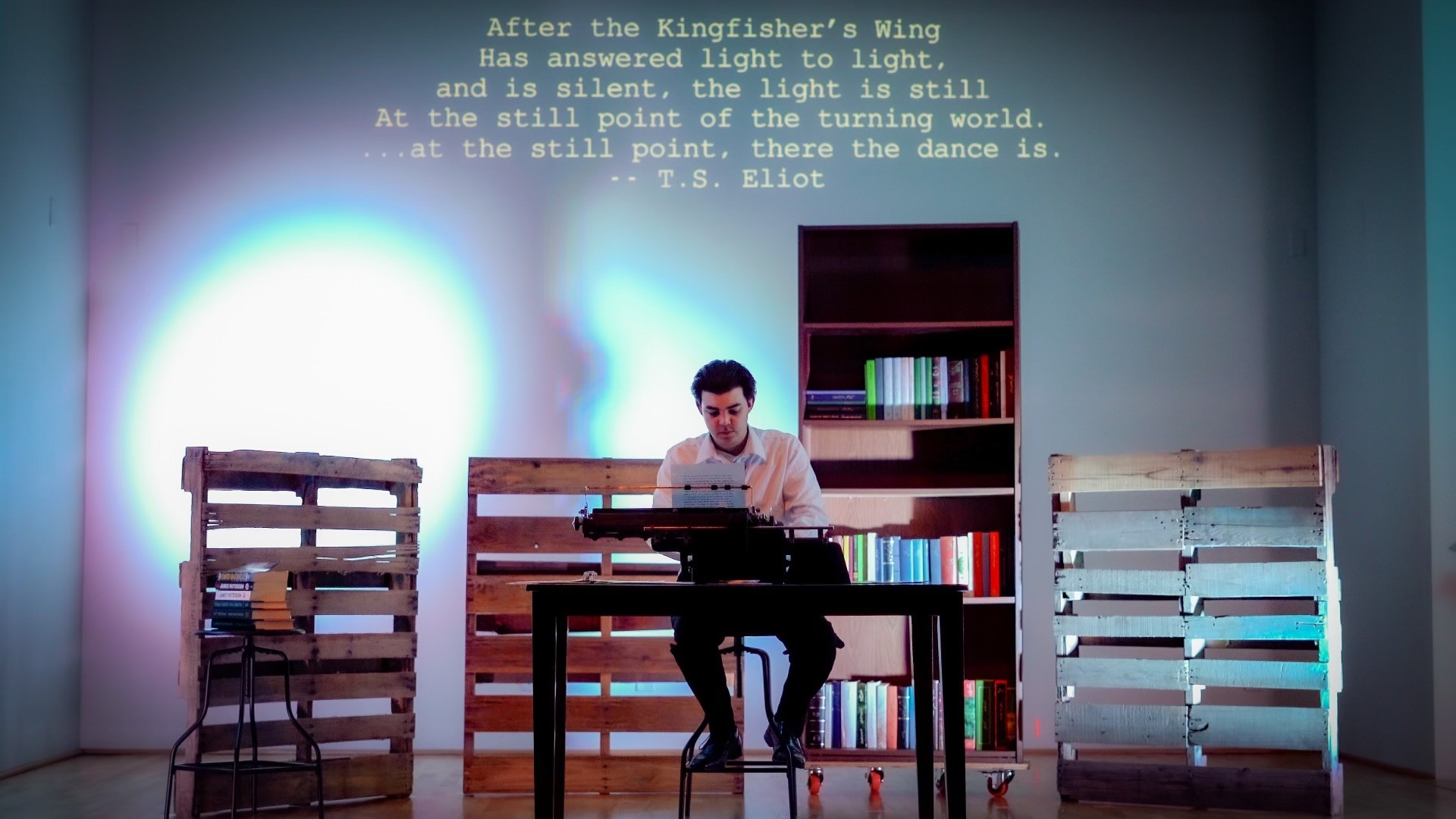
National Convention 2018: sense of urgency, focus on empowerment
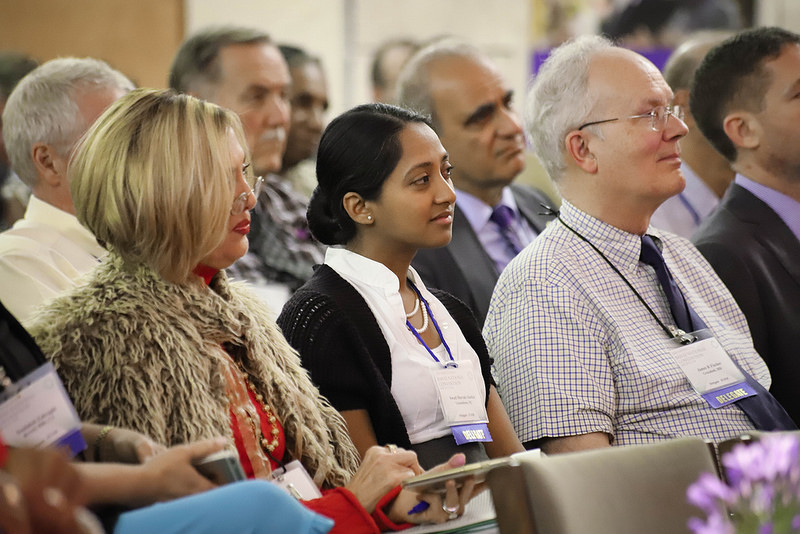
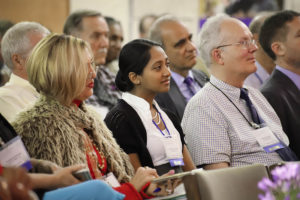
Light shone in many directions at the 110th United States Baha’i National Convention:
- From prayers and songs that drew on Baha’i sacred verses, seeking God’s guidance in helping people and communities learn to transform themselves for the better.
- From the focus of more than 160 delegates as they spoke and listened, examining human conditions and how Baha’is are working with others in cities, towns and neighborhoods to improve their lives and society.
- From their eagerness to use their scant free time to hear each other out, especially on learning to weave elements of racial justice and other imperatives into all of Baha’i community life.
- And from the earnest atmosphere of devotion in which the National Spiritual Assembly of the Baha’is of the United States was elected to steer the U.S. community’s course in the year ahead.
Radiating through the Convention, May 24–27 at the Baha’i House of Worship in Wilmette, Illinois, was an urgent, heartfelt conviction that this country, now more than ever, needs the power that the teachings of Baha’u’llah can lend to building bridges and unifying communities.
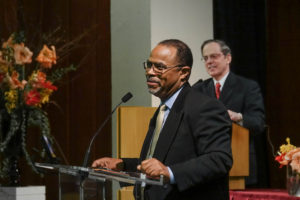
Particularly acute is a priority for individuals to move where there is need. “Go into those communities and call upon the friends and families that live there to help you help them, help one another, to build a world community,” urged Counselor Mark Sisson on the final day of Convention. “The means to do it is in our hands. All we have to do is apply it.” Sisson is a member of the Continental Board of Counselors, appointed to advise Baha’i institutions in North America.
He and Counselor Farah Guchani-Rosenberg were on hand to provide perspective on the current blueprint for that transformation — the Five Year Plan for development and growth of the Baha’i community, 2016–2021 — and on what is being learned in those efforts.
The National Spiritual Assembly offered reports on the community’s activities and finances, and members answered questions and concerns as needed.
Kenneth Bowers, secretary of the Assembly, said that even as the Plan’s framework for action embraces a variety of gatherings — to teach the Faith, pray and discuss together, and carry out spiritual education at a variety of age levels — it’s essential to think of Baha’u’llah’s vision “in terms of hearts and souls entering community life and making contributions to the uplifting of society.”
Last fall, 171 delegates were elected by Baha’is in geographic units from coast to coast. Exercising one of their two sacred duties at the Convention, 163 of them voted in person for the National Assembly on May 26 and the rest cast absentee ballots. Fully 35 were serving as delegates for the first time.
Most of the Convention was spent on their other duty: to inform the incoming National Assembly, through consultation, on the progress of the Faith. Topics for that consultation broadly outlined the priorities of the Plan:
“Movement of Clusters Along the Continuum of Development,” a look at how patterns of community life gain vitality through planning and collaboration within local clusters of communities.
“Strengthening the Training Institute,” concerned with children’s classes, junior youth groups and study circles, especially as spaces for people to accompany each other in learning to serve humanity — and to build people’s capacity to create other opportunities, such as devotional gatherings and home visits.
“Enhancing Institutional Capacity,” the things Spiritual Assemblies and other institutions are learning as they work to channel resources into service and foster healthy community life.
“Involvement in the Life of Society,” on finding and utilizing opportunities to take part in public discourses and meaningful social action.
A concern touching on all those topics emerged from the hearts of delegates: the “most vital and challenging issue” of racial prejudice and how Baha’is and their friends can work through local community-building processes, public discourse and social action to create a coherent force for healing of racial rifts at every level.
Many participants remarked on the high level of substance, maturity and mutual respect all through the weekend’s discussions.
As a delegate noted during the consultation on racial prejudice, “This is a blessed moment right now. A learning moment for us, for our community. A snapshot moment, where we get a look at ourselves.”
Obviously, though, this crucible of thought will gain greater meaning as it gives Baha’is and their friends encouragement over the next year to get into spiritual and uplifting conversations that can lead to service, empowerment and transformation.
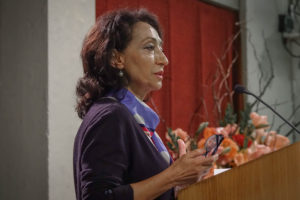
Fortunately, resources to make that easier have appeared over the past year, such as the revised The Baha’is magazine and the online films Light to the World and A Widening Embrace, Guchani-Rosenberg pointed out. “Now, more than ever before, we have so much to work with.”


